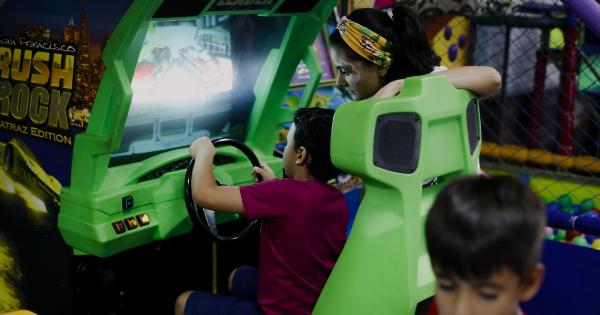For many of us, caffeine is a staple of daily life. We start our day with a cup of coffee and reach for an energy drink or soda to get us through the afternoon slump.
But what about children? Should they be consuming caffeine, and if so, how much is safe?.
What is Caffeine?
Caffeine is a natural stimulant found in coffee beans, tea leaves, cocoa beans, and other plant-based foods. It works by blocking the action of adenosine, a neurotransmitter that is responsible for making us feel tired and drowsy.
Instead, caffeine stimulates the central nervous system, making us feel more alert and awake.
Why Do Children Consume Caffeine?
Children may consume caffeine for a variety of reasons, including:.
- Drinking soda or energy drinks that contain caffeine
- Consuming chocolate or other foods containing caffeine
- Taking over-the-counter medications or herbal supplements that contain caffeine
Additionally, some children may consume caffeine inadvertently. For example, some brands of chocolate milk contain small amounts of caffeine, and some flavors of yogurt and ice cream also contain caffeine.
How Much Caffeine is Safe for Children?
The American Academy of Pediatrics (AAP) states that caffeine consumption is generally safe for children as long as it is consumed in moderation. However, the AAP recommends that children under 12 should not consume more than 85mg of caffeine per day.
For children over 12, the recommended daily limit is 100mg.
It’s important to note that caffeine affects children differently than adults. Children tend to be more sensitive to caffeine, and even small amounts can cause side effects such as difficulty sleeping, jitteriness, and stomach upset.
How to Reduce Your Child’s Caffeine Consumption
If you’re concerned about your child’s caffeine intake, here are some tips for reducing their consumption:.
- Limit soda and energy drinks: These beverages are often high in caffeine and sugar, which can lead to obesity and tooth decay. Opt for water, milk, or 100% fruit juice instead.
- Avoid chocolate and other caffeine-containing foods: While small amounts of chocolate are generally safe, larger amounts can contribute to your child’s daily caffeine intake. Be sure to check food labels for caffeine content.
- Check medication labels: Some over-the-counter medications, such as decongestants and pain relievers, contain caffeine. Be sure to read the label and check with your child’s doctor or pharmacist if you’re unsure.
- Encourage healthy sleep habits: Poor sleep habits can contribute to fatigue and the desire for caffeine. Encourage your child to go to bed and wake up at the same time every day, and to avoid using electronic devices before bedtime.
Conclusion
Caffeine can be a part of a child’s diet, but it’s important to consume it in moderation.
Children should not consume more than 85mg of caffeine per day, and parents should be mindful of the source of their child’s caffeine, such as soda, energy drinks, and chocolate. By encouraging healthy sleep habits and making smart beverage and food choices, parents can help their children stay healthy and energized without relying on caffeine.




























